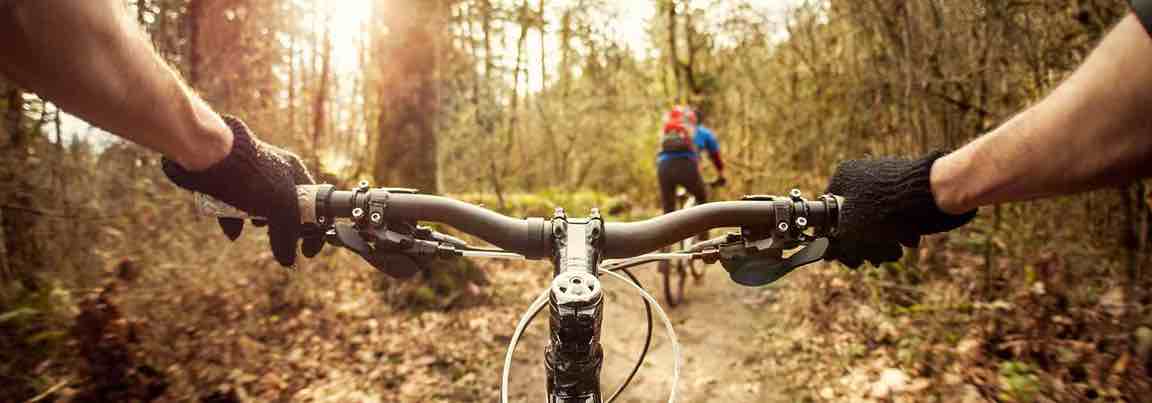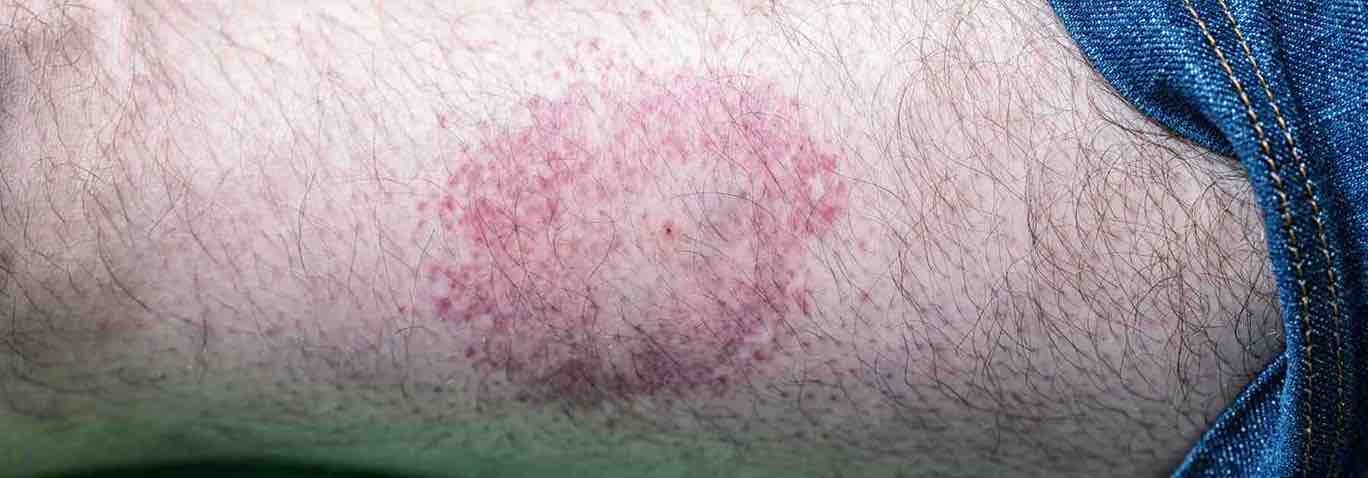Why Every Adventure Traveller Should Carry A Tick Remover Tool
If you enjoy hiking, camping or exploring new environments, knowing how to stay safe from ticks is an essential part of travel preparation. At Midnight Pharmacy, we support travellers through our private travel clinic in Bradford with protection, prevention and expert guidance. Carrying a tick remover tool may seem like a small detail, but it can make a significant difference to your health when you are spending time outdoors in the UK or abroad. Ticks are found in grassy, wooded and rural areas, and they can transmit infections if they are not removed correctly. Understanding how to stay prepared helps ensure your trip remains safe, enjoyable and stress-free.
Why Ticks Are Common Among Travellers
Ticks thrive in areas with wildlife, long grass and dense woodland. In the UK, they are increasingly found in national parks, forests, countryside footpaths and popular hiking trails. Europe and parts of Asia also have high tick populations, particularly during spring and summer. Adventure travellers who spend long periods outdoors are more likely to encounter ticks, especially if doing activities such as camping, backpacking or mountain trekking. Because ticks can attach without being felt, the risk is often underestimated.
Key reasons ticks pose a risk for travellers include:
- –> High activity in warm months and woodland environments
- –> Increased exposure during camping, hiking and adventurous outdoor travel
- –> The ability of ticks to attach without being noticed
The simple act of carrying a tick remover tool makes a big difference because early removal reduces the chance of infection. If you are unsure about the risks in your destination, our team can advise you before your trip.

Why A Tick Remover Tool Should Be A Travel Essential
A tick remover tool is designed to remove a tick cleanly from the skin without squeezing its body. This is important because squeezing can increase the chance of bacteria or viruses entering your system. Using fingers or household tweezers is unsafe and can leave tick parts behind, which may lead to irritation or infection. A proper remover tool helps you grip the tick at the correct angle and detach it safely. Having one in your rucksack or travel kit means you can act quickly if a tick attaches during your outdoor activities.
A tick remover tool is useful because:
- –> It removes ticks cleanly and safely
- –> It prevents accidental squeezing of the tick
- –> It avoids leaving tick parts behind in the skin
If you need guidance on how to use the tool, you can contact Midnight Pharmacy before you travel for advice or a demonstration.
Understanding The Health Risks Associated With Ticks
Ticks can carry illnesses such as Lyme disease in the UK and tick-borne encephalitis in parts of Europe and Asia. While not every tick carries infection, the consequences can be serious if they do. Lyme disease can cause fatigue, joint pain, fever and long-term complications if untreated. Tick-borne encephalitis affects the nervous system and can be severe, particularly in regions where the virus is more common. If you are travelling to areas with higher risk, the safest approach is preparation. Our private travel clinic in Bradford offers individual health assessments to help you understand the risks associated with your itinerary.
Travel Vaccinations Connected To Tick And Insect Exposure
Adventure travellers visiting higher-risk destinations may require vaccination for tick-borne encephalitis or Japanese encephalitis. These viruses are spread by insects in forested and rural environments, making them relevant for those who enjoy active or off-grid travel. At Midnight Pharmacy, we provide both vaccinations as part of our wider travel health service.
| Feature | Tick-Borne Encephalitis (TBE) | Japanese Encephalitis (JE) |
|---|---|---|
| Cause | Tick-borne encephalitis virus (TBEV), a flavivirus | Japanese encephalitis virus (JEV), a flavivirus |
| Main Vector | Infected Ixodes ticks (mainly Ixodes ricinus in Europe) | Infected Culex mosquitoes (especially Culex tritaeniorhynchus) |
| Primary Transmission | Tick bites; occasionally via unpasteurised milk from infected animals | Mosquito bites; no person-to-person spread |
| Geographical Distribution | Forest and rural areas of central, eastern and northern Europe, and parts of Russia and Asia | Rural and peri-urban areas of Asia and parts of the Western Pacific (rice fields, pig farms, wetlands) |
| Typical Risk Activities | Hiking, camping, forestry work, outdoor activities in tick-endemic woodland or grassland | Staying in rural areas, rice-growing regions, or near pig farms, especially during transmission season |
| Seasonality | Mainly spring to autumn in affected countries (tick season) | Varies by region; often peaks in or after rainy season when mosquito populations are highest |
| Incubation Period | Usually 7 to 14 days (can be up to 28 days) | Usually 5 to 15 days (range about 4 to 14 days) |
| Clinical Course | Biphasic in many cases: initial flu-like illness followed by possible neurological phase with meningitis or encephalitis | Most infections asymptomatic; small proportion progress to severe encephalitis with seizures and neurological complications |
| Long-Term Complications | Possible persistent neurological problems, cognitive issues and fatigue | Neurological disability, behavioural changes and movement disorders can be long term |
| Availability of Specific Treatment | No specific antiviral treatment; supportive care only | No specific antiviral treatment; supportive care only |
| Type of Vaccine | Inactivated whole-virus vaccine | Inactivated Vero cell-derived vaccine (e.g. IXIARO) or live attenuated vaccines in some countries |
| Typical UK / Europe Brand Examples | Ticovac (and other inactivated TBE vaccines) | IXIARO (inactivated JE vaccine widely used in travellers) |
| Licensed Age Range (commonly used traveller vaccines) | Paediatric and adult formulations; generally from 1 year of age (check specific product) | IXIARO licensed from 2 months of age (check current guidance) |
| Primary Course Schedule (Adults) | Usually 2 or 3 doses, e.g. at 0 and 1–3 months, with a third dose at 5–12 months depending on product; rapid schedules available | Typically 2 doses, e.g. at 0 and 28 days for IXIARO; accelerated schedules can be used in some cases |
| Booster Recommendations | Booster after 3 to 5 years, then at intervals depending on age and national guidelines | Booster after 1 to 2 years may be recommended for ongoing risk; follow national guidance |
| Who Should Consider Vaccination | Travellers spending time in rural or forested areas of endemic regions, especially if hiking, camping or working outdoors | Travellers spending significant time in rural or peri-urban areas in endemic regions, especially for longer stays or during high-risk season |
| Other Preventive Measures | Tick checks, use of repellents, protective clothing, avoiding sitting in long grass, prompt tick removal | Insect repellents, long sleeves and trousers, bed nets, screened accommodation, avoiding peak mosquito biting times where possible |
| Key Message For Travellers | Ideal for adventure travellers in endemic parts of Europe and Asia who will be in forests or countryside for extended periods | Important for travellers, especially children and long-term visitors, in rural Asia where JE is present |
You may need these vaccines if:
- –> You are hiking or camping in European forests
- –> You are visiting rural parts of Asia
- –> You are travelling during seasons with high insect activity
- –> You are taking part in long term or high exposure outdoor trips
You can book a pre-travel consultation to discuss your plans and receive tailored healthcare recommendations for your journey

Tick Removal And Post-Bite Advice
Even with good prevention, bites can still happen. This is where the tick remover tool becomes essential. Removing the tick as soon as possible reduces the risk of transmission. After removal, wash the area with soap and water and monitor for symptoms such as a rash or flu-like illness. If you are concerned after a bite, contact Midnight Pharmacy for advice. We can help you decide whether further assessment, testing or treatment is needed. Early action is always the safest option, especially if you are travelling or have recently returned from a high-risk region.

Prevention Tips For Adventure Travellers
Simple prevention steps help reduce tick exposure. Wearing long sleeves and trousers, using insect repellent, choosing light clothing to spot ticks more easily and checking your skin after outdoor activities are all effective habits. Carrying a tick remover tool is an important part of this approach. It is lightweight and inexpensive, and could prevent a serious illness.
To prepare effectively:
- –> Use insect repellent
- –> Wear protective clothing
- –> Check your skin regularly during outdoor trips
- –> Keep a tick remover tool in your travel kit
You can contact us at Midnight Pharmacy to ask questions and prepare your travel kit.
Support From Midnight Pharmacy’s Private Travel Clinic
Our private travel clinic in Bradford is designed to support adventure travellers with practical protection and personalised advice. Whether you need a tick remover tool, vaccinations for destinations with insect borne diseases or guidance on how to stay safe outdoors, our team is here to help. You can contact us to book an appointment, arrange vaccinations or discuss your itinerary with a travel health specialist.
If you are planning a hiking holiday, a camping trip or an adventure focused journey, reach out to Midnight Pharmacy to prepare safely. With the right tools and vaccinations, you can explore with confidence and peace of mind.
This blog was written on behalf of Midnight Pharmacy by Pharmacy Mentor.

